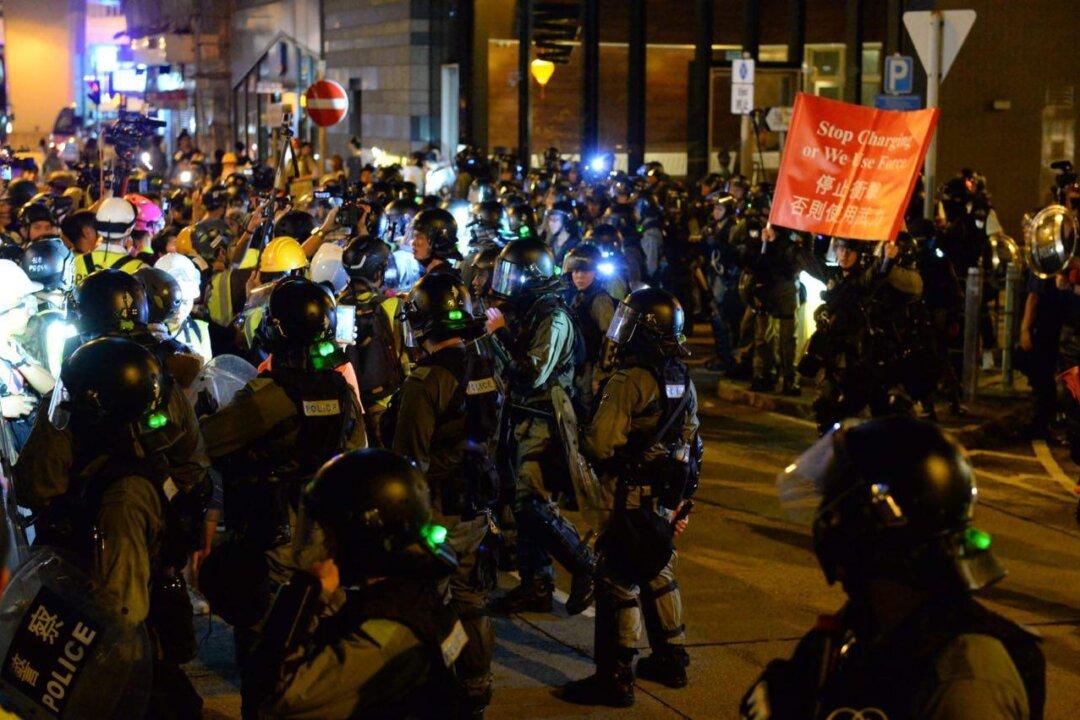A committee of China experts has appealed to President Donald Trump to respond to the Hong Kong extradition bill crisis with more solidarity.
“We write to you at a critical moment for freedom and American interests in the Far East,” the Aug. 30 open letter issued by the Committee on the Present Danger: China began.
“The people of Hong Kong are struggling to preserve the liberties and autonomy that the People’s Republic of China promised to respect when the territory ceased to be a British colony.
Founded in late March by a group of national security experts, business leaders, China critics, and human rights advocates, the committee has consistently sounded alarms about the dangers that the Chinese communist regime has posed by waging cyber, military, political, and economic warfare against the United States.
Hong Kong, a former British colony, was transferred to China under the ruling Chinese Communist Party (CCP) in 1997 according to the “One Country, Two Systems” agreement, which guarantees the city a high degree of freedom that mainlander Chinese do not enjoy. However, critics have remained skeptical as to whether the totalitarian CCP would honor the agreement.
The extradition bill, which would have put anyone on Hong Kong soil under the CCP’s jurisdiction, seems to have been the last straw for many Hongkongers who have witnessed the increasing influence of mainland politics into their city in recent years. This has reignited a wider call for greater civil rights and universal suffrage.

The suppression of the anti-extradition protests since June is “just one of the actions taken by the Chinese Communist Party (CCP) that violate Hong Kong’s legal autonomy,” the letter read.
The political crisis triggered by the extradition bill has seen near-daily demonstrations accompanied by the Hong Kong police stepping up their use of force on protesters, firing tear gas in enclosed areas such as subway stations and deploying water cannons for crowd control—a weapon that Amnesty International has warned to be extremely dangerous and can lead to serious injury or even death.

The CCP has voiced its support of the pro-Beijing majority Hong Kong authorities while referring to protesters as “radicals” and “rioters.”
“Under the direction of the Chinese Communist Party, the Hong Kong government has chosen to ignore the demands of the people, evidence that Hong Kong’s civil liberties are no longer respected,” the letter said. “What is left of its autonomy is in extremis.”
To discourage the CCP from taking military action to quell the protests and thereby depriving Hongkongers their basic rights, the committee members urged the Trump administration to invoke the Global Magnitsky Human Rights Accountability Act to hold local officials responsible for suppressing dissent accountable.
The committee specifically named Hong Kong Chief Executive Carrie Lam, Secretary for Justice Teresa Cheng, Secretary for Security John Lee, Hong Kong police commissioner Stephen Lo, and the director of the Hong Kong Liaison Office Wang Zhimin, calling for the United States to sanction the officials by denying them entry and freezing their assets.
Under the Hong Kong Policy Act of 1992, the United States has treated Hong Kong as a special entity separate from the mainland with respect to trade. The committee said that the United States should notify the CCP that the financial hub of Hong Kong will lose the benefits afforded by the Act if the People’s Armed Police or People’s Liberation Army units are called into the city, as well as the status of “preferential trading partner.”
The committee members expressed hope that such actions could deter Beijing from acting against the protesters and Hong Kong’s autonomy, adding that such measures are in keeping with standing for freedom.
“They will, at a minimum, demonstrate our nation’s solidarity with other freedom-loving people in the face of totalitarian oppression,” they said.





